- Kids Apparel Market By Product Type (USD Billion, 2019-2035)
- Tops
- Bottoms
- Outerwear
- Footwear
- Accessories
- Kids Apparel Market By Age Group (USD Billion, 2019-2035)
- Infants
- Toddlers
- Kids
- Pre-teens
- Teenagers
- Kids Apparel Market By Gender (USD Billion, 2019-2035)
- Kids Apparel Market By Distribution Channel (USD Billion, 2019-2035)
- Online Stores
- Department Stores
- Specialty Stores
- Supermarkets
- Discount Stores
- Kids Apparel Market By Regional (USD Billion, 2019-2035)
- North America
- Europe
- South America
- Asia Pacific
- Middle East and Africa
North America Outlook (USD Billion, 2019-2035)
Kids Apparel Market by Product Type
Tops
Bottoms
Outerwear
Footwear
Accessories
Kids Apparel Market by Age Group Type
Infants
Toddlers
Kids
Pre-teens
Teenagers
Kids Apparel Market by Gender Type
Boys
Girls
Unisex
Kids Apparel Market by Distribution Channel Type
Online Stores
Department Stores
Specialty Stores
Supermarkets
Discount Stores
Kids Apparel Market by Regional Type
US
Canada
US Outlook (USD Billion, 2019-2035)
Kids Apparel Market by Product Type
Tops
Bottoms
Outerwear
Footwear
Accessories
Kids Apparel Market by Age Group Type
Infants
Toddlers
Kids
Pre-teens
Teenagers
Kids Apparel Market by Gender Type
Boys
Girls
Unisex
Kids Apparel Market by Distribution Channel Type
Online Stores
Department Stores
Specialty Stores
Supermarkets
Discount Stores
CANADA Outlook (USD Billion, 2019-2035)
Kids Apparel Market by Product Type
Tops
Bottoms
Outerwear
Footwear
Accessories
Kids Apparel Market by Age Group Type
Infants
Toddlers
Kids
Pre-teens
Teenagers
Kids Apparel Market by Gender Type
Boys
Girls
Unisex
Kids Apparel Market by Distribution Channel Type
Online Stores
Department Stores
Specialty Stores
Supermarkets
Discount Stores
Europe Outlook (USD Billion, 2019-2035)
Kids Apparel Market by Product Type
Tops
Bottoms
Outerwear
Footwear
Accessories
Kids Apparel Market by Age Group Type
Infants
Toddlers
Kids
Pre-teens
Teenagers
Kids Apparel Market by Gender Type
Boys
Girls
Unisex
Kids Apparel Market by Distribution Channel Type
Online Stores
Department Stores
Specialty Stores
Supermarkets
Discount Stores
Kids Apparel Market by Regional Type
Germany
UK
France
Russia
Italy
Spain
Rest of Europe
GERMANY Outlook (USD Billion, 2019-2035)
Kids Apparel Market by Product Type
Tops
Bottoms
Outerwear
Footwear
Accessories
Kids Apparel Market by Age Group Type
Infants
Toddlers
Kids
Pre-teens
Teenagers
Kids Apparel Market by Gender Type
Boys
Girls
Unisex
Kids Apparel Market by Distribution Channel Type
Online Stores
Department Stores
Specialty Stores
Supermarkets
Discount Stores
UK Outlook (USD Billion, 2019-2035)
Kids Apparel Market by Product Type
Tops
Bottoms
Outerwear
Footwear
Accessories
Kids Apparel Market by Age Group Type
Infants
Toddlers
Kids
Pre-teens
Teenagers
Kids Apparel Market by Gender Type
Boys
Girls
Unisex
Kids Apparel Market by Distribution Channel Type
Online Stores
Department Stores
Specialty Stores
Supermarkets
Discount Stores
FRANCE Outlook (USD Billion, 2019-2035)
Kids Apparel Market by Product Type
Tops
Bottoms
Outerwear
Footwear
Accessories
Kids Apparel Market by Age Group Type
Infants
Toddlers
Kids
Pre-teens
Teenagers
Kids Apparel Market by Gender Type
Boys
Girls
Unisex
Kids Apparel Market by Distribution Channel Type
Online Stores
Department Stores
Specialty Stores
Supermarkets
Discount Stores
RUSSIA Outlook (USD Billion, 2019-2035)
Kids Apparel Market by Product Type
Tops
Bottoms
Outerwear
Footwear
Accessories
Kids Apparel Market by Age Group Type
Infants
Toddlers
Kids
Pre-teens
Teenagers
Kids Apparel Market by Gender Type
Boys
Girls
Unisex
Kids Apparel Market by Distribution Channel Type
Online Stores
Department Stores
Specialty Stores
Supermarkets
Discount Stores
ITALY Outlook (USD Billion, 2019-2035)
Kids Apparel Market by Product Type
Tops
Bottoms
Outerwear
Footwear
Accessories
Kids Apparel Market by Age Group Type
Infants
Toddlers
Kids
Pre-teens
Teenagers
Kids Apparel Market by Gender Type
Boys
Girls
Unisex
Kids Apparel Market by Distribution Channel Type
Online Stores
Department Stores
Specialty Stores
Supermarkets
Discount Stores
SPAIN Outlook (USD Billion, 2019-2035)
Kids Apparel Market by Product Type
Tops
Bottoms
Outerwear
Footwear
Accessories
Kids Apparel Market by Age Group Type
Infants
Toddlers
Kids
Pre-teens
Teenagers
Kids Apparel Market by Gender Type
Boys
Girls
Unisex
Kids Apparel Market by Distribution Channel Type
Online Stores
Department Stores
Specialty Stores
Supermarkets
Discount Stores
REST OF EUROPE Outlook (USD Billion, 2019-2035)
Kids Apparel Market by Product Type
Tops
Bottoms
Outerwear
Footwear
Accessories
Kids Apparel Market by Age Group Type
Infants
Toddlers
Kids
Pre-teens
Teenagers
Kids Apparel Market by Gender Type
Boys
Girls
Unisex
Kids Apparel Market by Distribution Channel Type
Online Stores
Department Stores
Specialty Stores
Supermarkets
Discount Stores
APAC Outlook (USD Billion, 2019-2035)
Kids Apparel Market by Product Type
Tops
Bottoms
Outerwear
Footwear
Accessories
Kids Apparel Market by Age Group Type
Infants
Toddlers
Kids
Pre-teens
Teenagers
Kids Apparel Market by Gender Type
Boys
Girls
Unisex
Kids Apparel Market by Distribution Channel Type
Online Stores
Department Stores
Specialty Stores
Supermarkets
Discount Stores
Kids Apparel Market by Regional Type
China
India
Japan
South Korea
Malaysia
Thailand
Indonesia
Rest of APAC
CHINA Outlook (USD Billion, 2019-2035)
Kids Apparel Market by Product Type
Tops
Bottoms
Outerwear
Footwear
Accessories
Kids Apparel Market by Age Group Type
Infants
Toddlers
Kids
Pre-teens
Teenagers
Kids Apparel Market by Gender Type
Boys
Girls
Unisex
Kids Apparel Market by Distribution Channel Type
Online Stores
Department Stores
Specialty Stores
Supermarkets
Discount Stores
INDIA Outlook (USD Billion, 2019-2035)
Kids Apparel Market by Product Type
Tops
Bottoms
Outerwear
Footwear
Accessories
Kids Apparel Market by Age Group Type
Infants
Toddlers
Kids
Pre-teens
Teenagers
Kids Apparel Market by Gender Type
Boys
Girls
Unisex
Kids Apparel Market by Distribution Channel Type
Online Stores
Department Stores
Specialty Stores
Supermarkets
Discount Stores
JAPAN Outlook (USD Billion, 2019-2035)
Kids Apparel Market by Product Type
Tops
Bottoms
Outerwear
Footwear
Accessories
Kids Apparel Market by Age Group Type
Infants
Toddlers
Kids
Pre-teens
Teenagers
Kids Apparel Market by Gender Type
Boys
Girls
Unisex
Kids Apparel Market by Distribution Channel Type
Online Stores
Department Stores
Specialty Stores
Supermarkets
Discount Stores
SOUTH KOREA Outlook (USD Billion, 2019-2035)
Kids Apparel Market by Product Type
Tops
Bottoms
Outerwear
Footwear
Accessories
Kids Apparel Market by Age Group Type
Infants
Toddlers
Kids
Pre-teens
Teenagers
Kids Apparel Market by Gender Type
Boys
Girls
Unisex
Kids Apparel Market by Distribution Channel Type
Online Stores
Department Stores
Specialty Stores
Supermarkets
Discount Stores
MALAYSIA Outlook (USD Billion, 2019-2035)
Kids Apparel Market by Product Type
Tops
Bottoms
Outerwear
Footwear
Accessories
Kids Apparel Market by Age Group Type
Infants
Toddlers
Kids
Pre-teens
Teenagers
Kids Apparel Market by Gender Type
Boys
Girls
Unisex
Kids Apparel Market by Distribution Channel Type
Online Stores
Department Stores
Specialty Stores
Supermarkets
Discount Stores
THAILAND Outlook (USD Billion, 2019-2035)
Kids Apparel Market by Product Type
Tops
Bottoms
Outerwear
Footwear
Accessories
Kids Apparel Market by Age Group Type
Infants
Toddlers
Kids
Pre-teens
Teenagers
Kids Apparel Market by Gender Type
Boys
Girls
Unisex
Kids Apparel Market by Distribution Channel Type
Online Stores
Department Stores
Specialty Stores
Supermarkets
Discount Stores
INDONESIA Outlook (USD Billion, 2019-2035)
Kids Apparel Market by Product Type
Tops
Bottoms
Outerwear
Footwear
Accessories
Kids Apparel Market by Age Group Type
Infants
Toddlers
Kids
Pre-teens
Teenagers
Kids Apparel Market by Gender Type
Boys
Girls
Unisex
Kids Apparel Market by Distribution Channel Type
Online Stores
Department Stores
Specialty Stores
Supermarkets
Discount Stores
REST OF APAC Outlook (USD Billion, 2019-2035)
Kids Apparel Market by Product Type
Tops
Bottoms
Outerwear
Footwear
Accessories
Kids Apparel Market by Age Group Type
Infants
Toddlers
Kids
Pre-teens
Teenagers
Kids Apparel Market by Gender Type
Boys
Girls
Unisex
Kids Apparel Market by Distribution Channel Type
Online Stores
Department Stores
Specialty Stores
Supermarkets
Discount Stores
South America Outlook (USD Billion, 2019-2035)
Kids Apparel Market by Product Type
Tops
Bottoms
Outerwear
Footwear
Accessories
Kids Apparel Market by Age Group Type
Infants
Toddlers
Kids
Pre-teens
Teenagers
Kids Apparel Market by Gender Type
Boys
Girls
Unisex
Kids Apparel Market by Distribution Channel Type
Online Stores
Department Stores
Specialty Stores
Supermarkets
Discount Stores
Kids Apparel Market by Regional Type
Brazil
Mexico
Argentina
Rest of South America
BRAZIL Outlook (USD Billion, 2019-2035)
Kids Apparel Market by Product Type
Tops
Bottoms
Outerwear
Footwear
Accessories
Kids Apparel Market by Age Group Type
Infants
Toddlers
Kids
Pre-teens
Teenagers
Kids Apparel Market by Gender Type
Boys
Girls
Unisex
Kids Apparel Market by Distribution Channel Type
Online Stores
Department Stores
Specialty Stores
Supermarkets
Discount Stores
MEXICO Outlook (USD Billion, 2019-2035)
Kids Apparel Market by Product Type
Tops
Bottoms
Outerwear
Footwear
Accessories
Kids Apparel Market by Age Group Type
Infants
Toddlers
Kids
Pre-teens
Teenagers
Kids Apparel Market by Gender Type
Boys
Girls
Unisex
Kids Apparel Market by Distribution Channel Type
Online Stores
Department Stores
Specialty Stores
Supermarkets
Discount Stores
ARGENTINA Outlook (USD Billion, 2019-2035)
Kids Apparel Market by Product Type
Tops
Bottoms
Outerwear
Footwear
Accessories
Kids Apparel Market by Age Group Type
Infants
Toddlers
Kids
Pre-teens
Teenagers
Kids Apparel Market by Gender Type
Boys
Girls
Unisex
Kids Apparel Market by Distribution Channel Type
Online Stores
Department Stores
Specialty Stores
Supermarkets
Discount Stores
REST OF SOUTH AMERICA Outlook (USD Billion, 2019-2035)
Kids Apparel Market by Product Type
Tops
Bottoms
Outerwear
Footwear
Accessories
Kids Apparel Market by Age Group Type
Infants
Toddlers
Kids
Pre-teens
Teenagers
Kids Apparel Market by Gender Type
Boys
Girls
Unisex
Kids Apparel Market by Distribution Channel Type
Online Stores
Department Stores
Specialty Stores
Supermarkets
Discount Stores
MEA Outlook (USD Billion, 2019-2035)
Kids Apparel Market by Product Type
Tops
Bottoms
Outerwear
Footwear
Accessories
Kids Apparel Market by Age Group Type
Infants
Toddlers
Kids
Pre-teens
Teenagers
Kids Apparel Market by Gender Type
Boys
Girls
Unisex
Kids Apparel Market by Distribution Channel Type
Online Stores
Department Stores
Specialty Stores
Supermarkets
Discount Stores
Kids Apparel Market by Regional Type
GCC Countries
South Africa
Rest of MEA
GCC COUNTRIES Outlook (USD Billion, 2019-2035)
Kids Apparel Market by Product Type
Tops
Bottoms
Outerwear
Footwear
Accessories
Kids Apparel Market by Age Group Type
Infants
Toddlers
Kids
Pre-teens
Teenagers
Kids Apparel Market by Gender Type
Boys
Girls
Unisex
Kids Apparel Market by Distribution Channel Type
Online Stores
Department Stores
Specialty Stores
Supermarkets
Discount Stores
SOUTH AFRICA Outlook (USD Billion, 2019-2035)
Kids Apparel Market by Product Type
Tops
Bottoms
Outerwear
Footwear
Accessories
Kids Apparel Market by Age Group Type
Infants
Toddlers
Kids
Pre-teens
Teenagers
Kids Apparel Market by Gender Type
Boys
Girls
Unisex
Kids Apparel Market by Distribution Channel Type
Online Stores
Department Stores
Specialty Stores
Supermarkets
Discount Stores
REST OF MEA Outlook (USD Billion, 2019-2035)
Kids Apparel Market by Product Type
Tops
Bottoms
Outerwear
Footwear
Accessories
Kids Apparel Market by Age Group Type
Infants
Toddlers
Kids
Pre-teens
Teenagers
Kids Apparel Market by Gender Type
Boys
Girls
Unisex
Kids Apparel Market by Distribution Channel Type
Online Stores
Department Stores
Specialty Stores
Supermarkets
Discount Stores


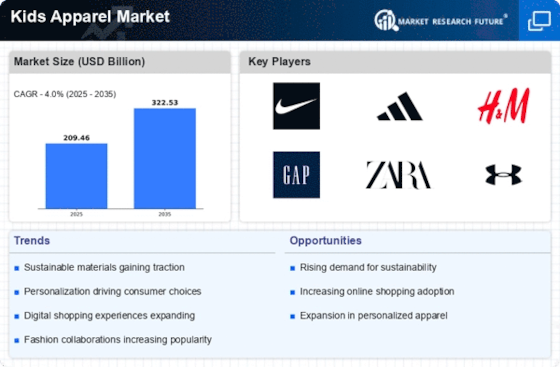
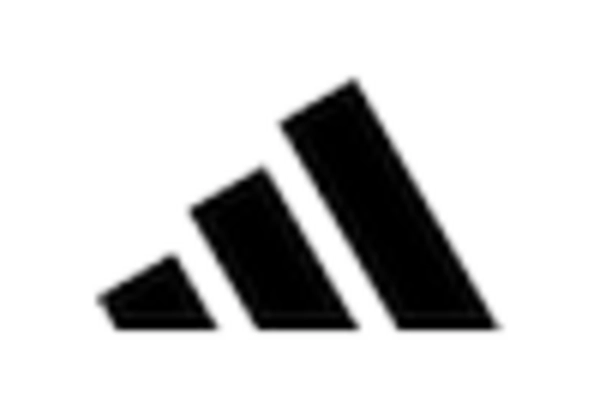
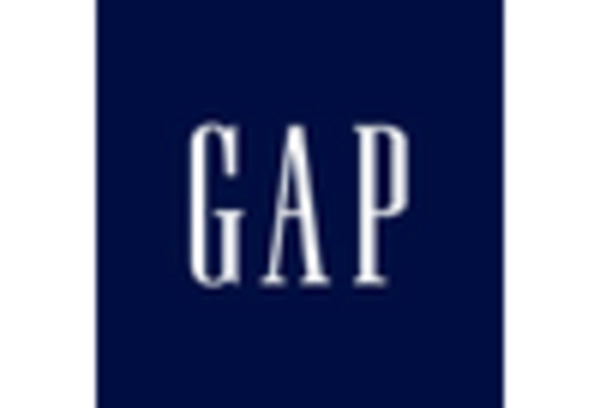
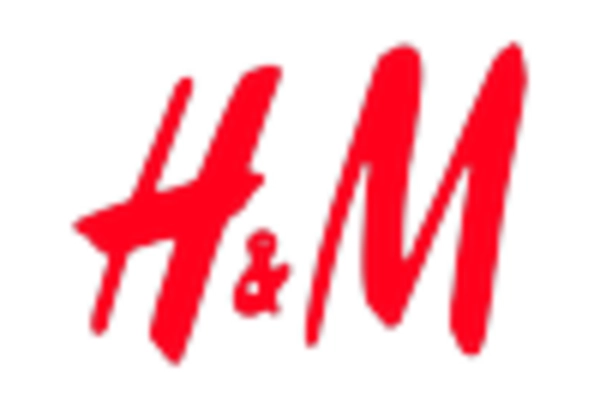
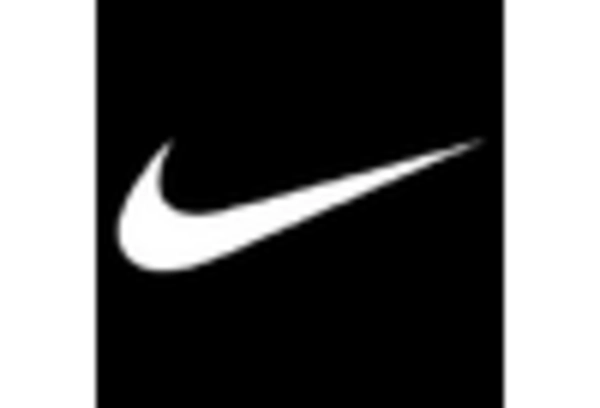
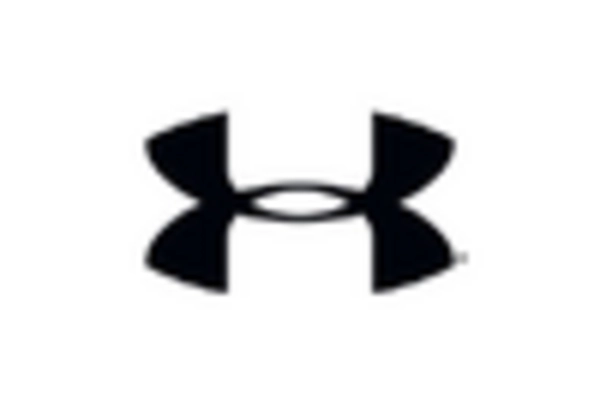
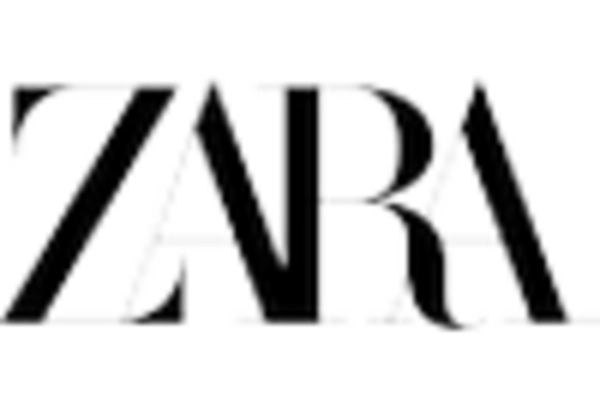










Leave a Comment